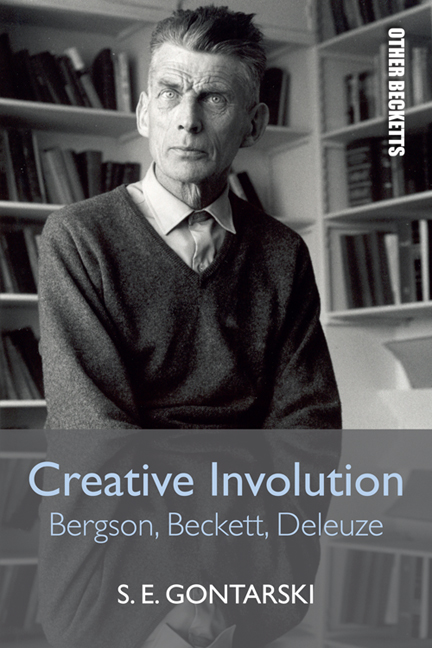Book contents
- Frontmatter
- Contents
- Dedication
- Other Becketts: Series Preface
- Abbreviations for Works
- Acknowledgements
- 1 ‘All the Dead Voices’: A Preface
- 2 ‘A Mixed Choir’ from The Ditch of Astonishment: An Introduction
- Anteriors
- 3 The Invention of the Modern: A Symbiotic Remapping
- 4 ‘Thought Thinks in its Own Right’: A. A. Luce, Samuel Beckett and Bergson's Doctrine of Failure
- Interiors
- Posteriors
- Index
3 - The Invention of the Modern: A Symbiotic Remapping
from Anteriors
Published online by Cambridge University Press: 05 August 2016
- Frontmatter
- Contents
- Dedication
- Other Becketts: Series Preface
- Abbreviations for Works
- Acknowledgements
- 1 ‘All the Dead Voices’: A Preface
- 2 ‘A Mixed Choir’ from The Ditch of Astonishment: An Introduction
- Anteriors
- 3 The Invention of the Modern: A Symbiotic Remapping
- 4 ‘Thought Thinks in its Own Right’: A. A. Luce, Samuel Beckett and Bergson's Doctrine of Failure
- Interiors
- Posteriors
- Index
Summary
I cannot escape the objection that there is no state of mind, however simple, which does not change every moment, since there is no consciousness without memory, and no continuation of a state without the addition, to the present feeling, of the memory of past moments. It is this which constitutes duration. Inner duration is the continuous life of a memory which prolongs the past into the present, the present either containing within it in a distinct form the ceaselessly growing image of the past, or, more profoundly, showing by its continual change of quality the heavier and still heavier load we drag behind us as we grow older. Without this survival of the past into the present there would be no duration, but only instantaneity. (Bergson, An Introduction to Metaphysics, 44)
The present contains nothing more than the past, and what is found in the effect was already in the cause. (Bergson, Creative Evolution, 14, emphasis in the original)
‘The Poisonous Error of Philosophical Modernism’
Not long after Henri Bergson's books began to appear in English translation in 1910, the year in which, presumably, as Virginia Woolf proclaimed, ‘human character changed’, the attacks on Bergson were as virulent as recognition and praise were widespread and effusive. Eight months before he began his lectures in the United States, the New York Times of 26 May 2012 dismissed and ridiculed his philosophy as a passing fad: ‘Bergson is the popular philosopher of the day. He is the pet of the Intellectuals. Being the newest philosophic fad– the latest drawing room attraction– we must– every one of us– know something about him. Else, how shall we move in the highest intellectual circles? To be sure, we shall all see through Bergson soon: we shall all read his reading of Time out of court.’ Six months after Bergson's American lecture tour, which ran from 2–27 February 1913, a lead note carried on the front page of the New York Times of 28 August declaimed: ‘Pope Denounces Bergson’; according to Pope Pius X, ‘In the presence of these false theories of this new Bergsonian philosophy which seeks to shatter grand fundamental principles and truths, it is necessary to unmask the poisonous error of philosophical modernism’ (emphasis added).
- Type
- Chapter
- Information
- Creative InvolutionBergson, Beckett, Deleuze, pp. 33 - 76Publisher: Edinburgh University PressPrint publication year: 2015



